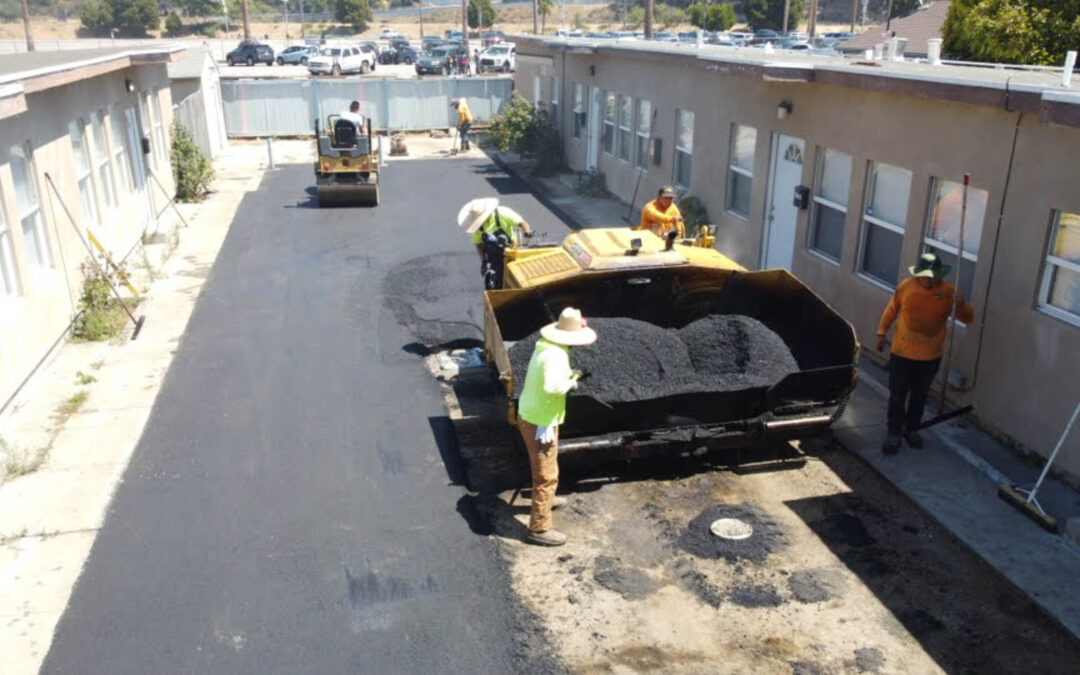Asphalt is a popular paving material for driveways, parking lots, and roads due to its durability and cost-effectiveness. If you’re planning to pave an area with asphalt, one of the first things you’ll want to know is how much it will cost. Calculating the price of asphalt involves several factors, including the size of the area, the thickness of the asphalt layer, material costs, and labor. In this article, we’ll guide you through the steps to accurately calculate the price of asphalt for your project.
1. Determine the Area to Be Paved
The first step in calculating the price of asphalt is determining the size of the area that needs to be paved. Asphalt is typically priced by the square foot, so you’ll need to measure the length and width of the space to get the total square footage.
Step-by-Step Process:
- Measure the Length and Width: Use a tape measure to determine the length and width of the area in feet. If the area is irregularly shaped, break it down into smaller rectangles or squares, measure each one separately, and then add them together.
- Calculate the Square Footage: Multiply the length by the width to get the total square footage. For example, if your driveway is 20 feet long and 10 feet wide, the total square footage would be 200 square feet.
Formula:Square Footage=Length (in feet)×Width (in feet)\text{Square Footage} = \text{Length (in feet)} \times \text{Width (in feet)}Square Footage=Length (in feet)×Width (in feet)
2. Decide on the Thickness of the Asphalt Layer
The thickness of the asphalt layer is another crucial factor in determining the cost. Asphalt is typically laid in layers, with a common thickness ranging from 2 to 4 inches for residential driveways. Thicker layers are more expensive but offer greater durability, especially in areas with heavy traffic or harsh weather conditions.
Considerations:
- Residential Driveways: A 2 to 3-inch layer is usually sufficient.
- Parking Lots and Roads: A 4-inch or thicker layer may be necessary for areas with heavy traffic.
Formula:Cubic Feet of Asphalt=Square Footage×Asphalt Thickness (in feet)\text{Cubic Feet of Asphalt} = \text{Square Footage} \times \text{Asphalt Thickness (in feet)}Cubic Feet of Asphalt=Square Footage×Asphalt Thickness (in feet)
Convert the thickness from inches to feet (e.g., 2 inches = 0.167 feet).
3. Calculate the Volume of Asphalt Needed
Once you have the total square footage and the desired thickness, you can calculate the volume of asphalt needed. The volume will help you estimate how much asphalt mix you’ll need to purchase.
Formula:Volume (in cubic feet)=Square Footage×Thickness (in feet)\text{Volume (in cubic feet)} = \text{Square Footage} \times \text{Thickness (in feet)}Volume (in cubic feet)=Square Footage×Thickness (in feet)
For example, if you have a 200-square-foot driveway and want a 2-inch thick layer of asphalt, the calculation would be:Volume=200×0.167=33.4 cubic feet\text{Volume} = 200 \times 0.167 = 33.4 \text{ cubic feet}Volume=200×0.167=33.4 cubic feet
4. Convert the Volume to Tons
Asphalt is typically sold by the ton, so you’ll need to convert the volume from cubic feet to tons. The density of asphalt is approximately 145 pounds per cubic foot, which translates to about 0.073 tons per cubic foot.
Formula:Weight (in tons)=Volume (in cubic feet)×0.073 tons per cubic foot\text{Weight (in tons)} = \text{Volume (in cubic feet)} \times 0.073 \text{ tons per cubic foot}Weight (in tons)=Volume (in cubic feet)×0.073 tons per cubic foot
Using the previous example:Weight=33.4×0.073=2.44 tons\text{Weight} = 33.4 \times 0.073 = 2.44 \text{ tons}Weight=33.4×0.073=2.44 tons
5. Determine the Cost of Asphalt per Ton
The cost of asphalt per ton varies depending on factors such as location, the quality of the asphalt mix, and current market prices. On average, asphalt costs between $100 and $150 per ton. Contact local suppliers to get an accurate price for your area.
Example Calculation:
If asphalt costs $120 per ton and you need 2.44 tons:Material Cost=2.44×120=$292.80\text{Material Cost} = 2.44 \times 120 = \$292.80Material Cost=2.44×120=$292.80
6. Factor in Labor Costs
Labor costs can significantly affect the total price of your asphalt project. Labor rates vary depending on the region and the complexity of the job. On average, labor costs range from $2 to $5 per square foot.
Example Calculation:
For a 200-square-foot driveway with a labor cost of $3 per square foot:Labor Cost=200×3=$600\text{Labor Cost} = 200 \times 3 = \$600Labor Cost=200×3=$600
7. Include Additional Costs
Don’t forget to factor in additional costs that may apply to your project, such as:
- Site Preparation: Clearing and grading the site, removing old pavement, and addressing drainage issues can add to the cost.
- Permits and Inspections: Depending on your location, you may need permits or inspections, which can also add to the overall cost.
- Sealing and Finishing: Sealing the asphalt after installation helps protect it and prolong its life. This is an optional but recommended step that adds to the cost.
Example Calculation:
If additional costs (e.g., site preparation, sealing) amount to $200:Additional Costs=$200\text{Additional Costs} = \$200Additional Costs=$200
8. Calculate the Total Price
Now that you have all the necessary components, you can calculate the total price of the asphalt project.
Formula:Total Price=Material Cost+Labor Cost+Additional Costs\text{Total Price} = \text{Material Cost} + \text{Labor Cost} + \text{Additional Costs}Total Price=Material Cost+Labor Cost+Additional Costs
Using the previous examples:Total Price=292.80+600+200=$1,092.80\text{Total Price} = 292.80 + 600 + 200 = \$1,092.80Total Price=292.80+600+200=$1,092.80
9. Consider Long-Term Maintenance Costs
While the initial cost is important, it’s also worth considering the long-term maintenance costs associated with asphalt. Regular maintenance, such as sealcoating, crack repairs, and resurfacing, will help extend the life of your asphalt surface but will also incur additional expenses over time.
Estimated Maintenance Costs:
- Sealcoating: $0.15 to $0.25 per square foot every 2-3 years.
- Crack Repairs: $0.50 to $1.00 per linear foot.
- Resurfacing: $1.50 to $2.50 per square foot every 15-20 years.
Conclusion
Calculating the price of asphalt for your project involves multiple factors, including the size of the area, the thickness of the asphalt layer, material costs, labor, and additional expenses. By carefully considering each of these elements and obtaining accurate quotes from suppliers and contractors, you can estimate the total cost of your asphalt paving project with confidence. Whether you’re paving a driveway, parking lot, or any other area, understanding the cost breakdown will help you budget effectively and make informed decisions.

